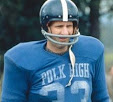 |
| Photo: The New York Times |
Peter Solari Follow @4PeteSakeNY
New York Mets reliever Jenrry Mejia entered the history books on Friday, joining the likes of Pete Rose and "Shoeless" Joe Jackson. The promising young pitcher was banned from baseball after testing positive for a banned substance for the third time in the past year. Mejia becomes the first player under MLB's anti-doping policy to garner the sport's harshest penalty.
Mejia, who converted 28 out of 31 save opportunities in 2014, first tested positive for performance enhancing drugs (PEDs) early in the 2015 season and was handed an 80-game suspension for the offense. Mejia served his time and returned to the team, but failed a second tests for PEDs in July, for which he was suspended another 162 games. He had 99 games left to serve on his last sentence before news of his this failed drug test came to light.
Mejia can apply for re-instatement in one year, but will have to sit out two seasons before he can take the field again. Reinstatement appears unlikely at this time. Two of Mejia's failed doping tests, including the latest, involved the substance boldenone, which has been used to gain an edge in horse racing. However, being the first case under a relatively new policy, anything is possible for Mejia.
PEDs have been rampant in sports for a long time, but the issue has haunted Major League Baseball since the 1990's. Baseball began suspending players for PED use in 2004. At that time, the league extended suspensions of 10 days for a first doping offense, 30 days for a second, 60 days for a third, and lifetime ban for a fourth failed drug test. Under pressure from the United States Congress in 2005, baseball toughened the penalties for first, second, and third doping offenses to 50 games, 100 games, and life, respectively. In 2014, MLB upped the punishments once again, to 80-games, 162-games, and life.
Mejia's suspension will be honored internationally by professional leagues in Japan, South Korea, and Mexico, as well as affiliated Minor League Baseball teams in the United States. American independent leagues are under no obligation to comply with his suspension, but still may choose to do so.
Since 2004, when baseball introduced it's aggressive anti-doping strategy, a number of players have been suspended for using PEDs, but up until now, none have tested positive three separate times. During the 2014 season, New York Yankee Alex Rodriguez served a 162-game suspension -unprecedented at the time - for his role in the biogenesis scandal. However, he has never failed an official drug test, and is in no danger of being banished.
Baseball has a long history of banishments, though mostly for gambling offenses. Eight members of the 1919 Chicago White Sox, including the great "Shoeless" Joe Jackson, were banned after gamblers paid them to lose that year's World Series. In 1989, then-commissioner Bart Giamatti banned Pete Rose, baseball's all-time leader in hits with 4, 256, for his involvement with gambling on baseball, including placing bets on the Cincinnati Reds, while managing the club. There is no evidence that Rose ever bet against the Reds, however he, as well as Jackson, who died in 1951, remain ineligible for entrance into baseball's Hall of Fame, to this day.
Throughout history, it hasn't been uncommon for baseball to eventually overturn lifetime bans. Hall of famers Mickey Mantle, Willie Mays, and Ferguson were all banned from baseball at one time-or-another, before being re-instated. Well known owners such as George Steinbrenner and Marge Schott were also reinstated after facing banishment.
For Mejia, it wouldn't be surprising if he's thrown his last pitch in the majors. After decades of turning a blind eye, baseball is committed to cleaning up the game, and ridding it of performance enhancing drugs. Players like Mark McGwire, Roger Clemens, and Barry Bonds, among others, have been disgraced by steroid use in recent. All three of those guys were locks to make the Hall of Fame until news of their doping broke. Today, they are long-shots at best, and MLB has shown no signs of softening it's position. With baseball going as far as shaming some of their greatest players ever, it's unlikely that Mejia, a youngster with no regard for the rules, will get any reprieve from them.
















